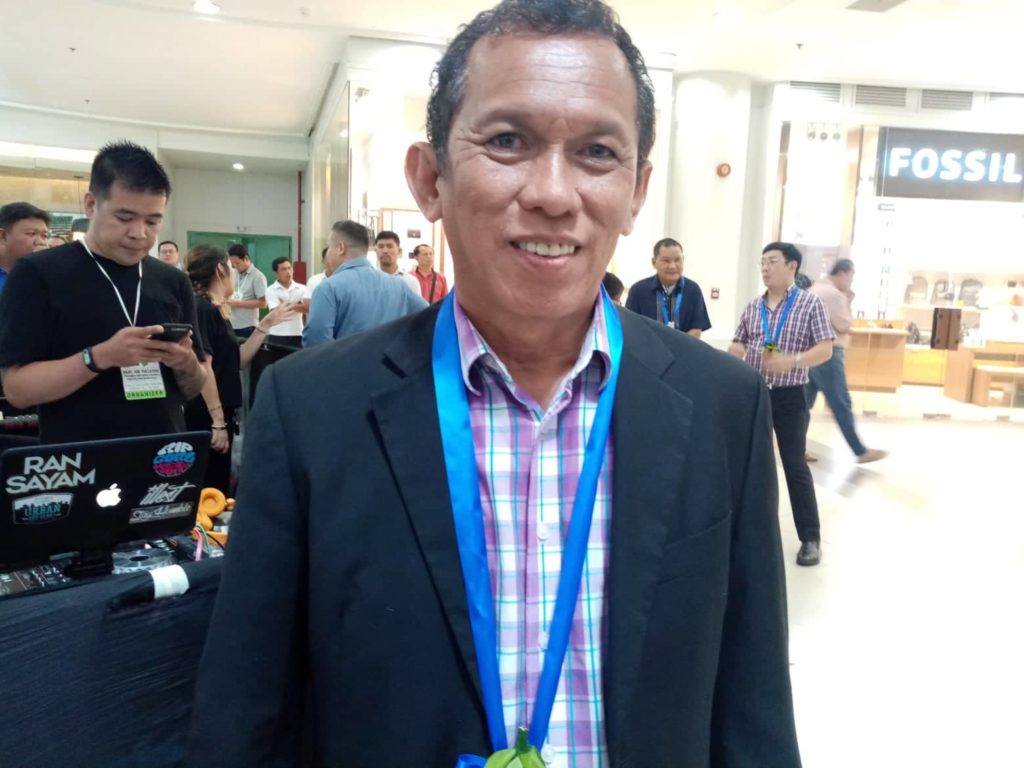DENR urges LGUs to invest in sanitary landfills

Regional Director William Cunado of the Environmental Management Bureau in Central Visayas calls on local government units to stop operating open dumpsites since these have been prohibited since 2006. CDN Digital photo| Irene R. Sino Cruz
CEBU CITY—Noting the lack of sanitary landfills in Central Visayas, the Department of Environment and Natural Resources (DENR) is urging local government units to invest in sanitary landfills.
“At present, some of our municipalities are still operating open/controlled dumpsites, which are prohibited since 2006. Dumpsites generate a mixture of pollution such as methane emissions, toxic and hazardous wastes, and plastic wastes,” said Regional Director William Cuñado of the Environmental Management Bureau (EMB) in Central Visayas.
According to Cuñado, the amount of waste generated per person has been increasing every year.
“In Region 7, we generate a total of over 2.864 million kilograms of waste per day,” he said, adding that this figure was based on the submitted and approved 10-year plans of LGUs. “This figure will continue to grow unless we reduce the amount of waste we generate.”
To reduce solid wastes, Cuñado also suggested that LGUs implement and encourage source reduction practices. These include avoidance of single-use plastics, buying products with recyclable packaging, and practicing proper wastes and segregation.
“Segregation largely minimizes the amount of wastes going to landfills since only residual wastes are supposed to end up in the landfills. The rest can be diverted through recycling and composting,” Cuñado pointed out.
Sharing investment costs
Meanwhile, DENR Undersecretary Benny Antiporda suggested that LGUs, which lack the required funding, could adopt clustering in the establishment of sanitary landfills so they could share the investment costs for the project.
Antiporda said the DENR would provide technical assistance to the LGUs and would serve as arbiter to come up with a help LGUs iron out details of the transaction.
However, if LGUs don’t have sanitary landfills yet, he said, LGUs can build a residual containment area, such as a warehouse, to serve as storage area for residual wastes.
Residual wastes refers to those that could not be recycled and have to be thrown away, such as sachets with aluminum and glass with wax coating, among others, Antiporda said. The residual wastes could later be pulled out for disposal at sanitary landfills.
He said they would be identifying municipalities and cities that need clustering so the DENR could provide the technical assistance.
In the Philippines, the local government units (LGUs) hold the primary responsibility for the effective and efficient solid waste management.
Republic Act 9003 or Ecological Solid Waste Management Act requires LGUs to close their existing open dumpsites by year 2006 and to establish controlled disposal facilities or SLFs.
A research by Alicia L. Castillo and Suehiro Otoma done for the University of Kitakyushu, Japan that was posted on the J-STAGE (https://www.jstage.jst.go.jp/article/jsmcwm/24/0/24_677/_pdf/) noted the low compliance of LGUs to Republic Act 9003 and rampant littering and unhealthy practice of burning wastes in some open dumps and areas.
J-STAGE is an electronic journal platform for science and technology information in Japan, developed and managed by the Japan Science and Technology Agency (JST).
“Hence, we believe that the key to effective solid waste management in the Philippines is firstly the political will of the LGUs to innovatively comply with RA 9003, through mobilization and participation of community, private and informal waste sectors towards minimizing solid waste and uplifting the economic status of the vulnerable groups of waste pickers, buyers and scavengers,” the authors wrote. /bmjo
Disclaimer: The comments uploaded on this site do not necessarily represent or reflect the views of management and owner of Cebudailynews. We reserve the right to exclude comments that we deem to be inconsistent with our editorial standards.
